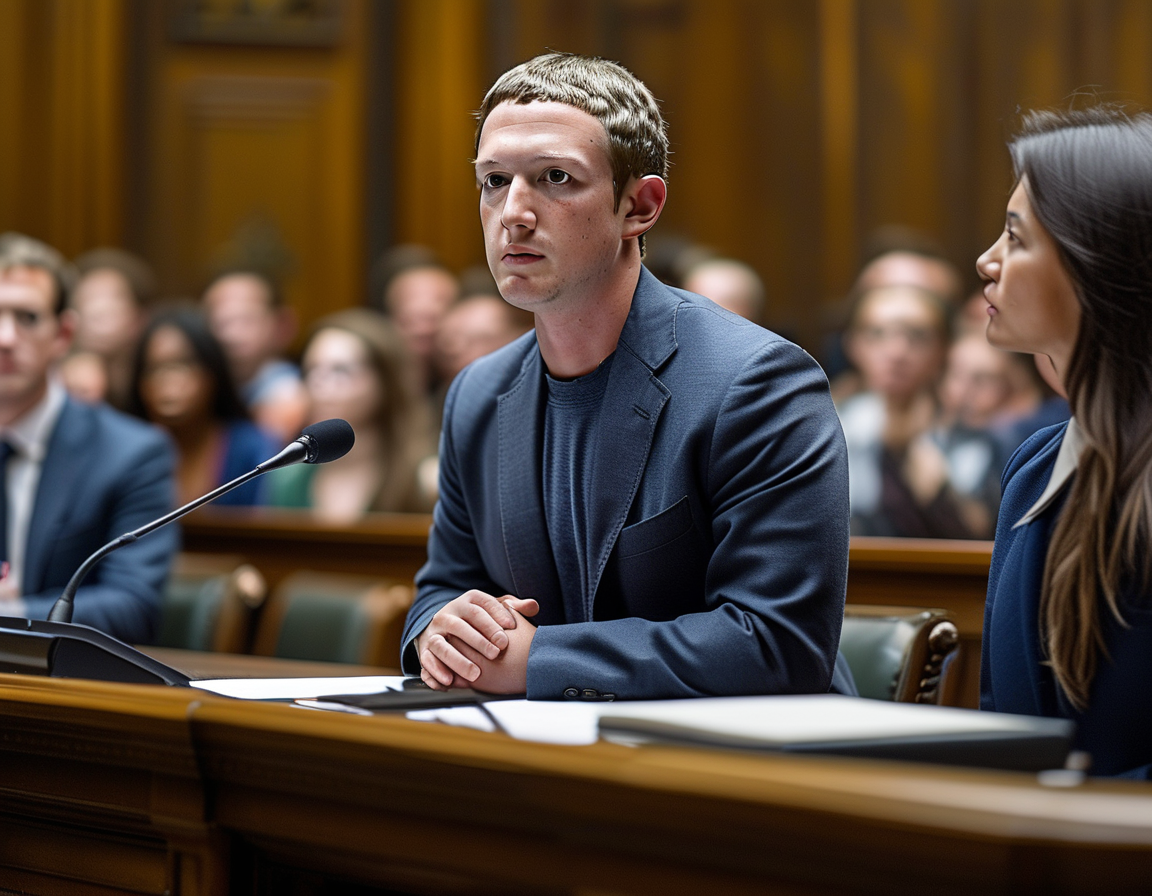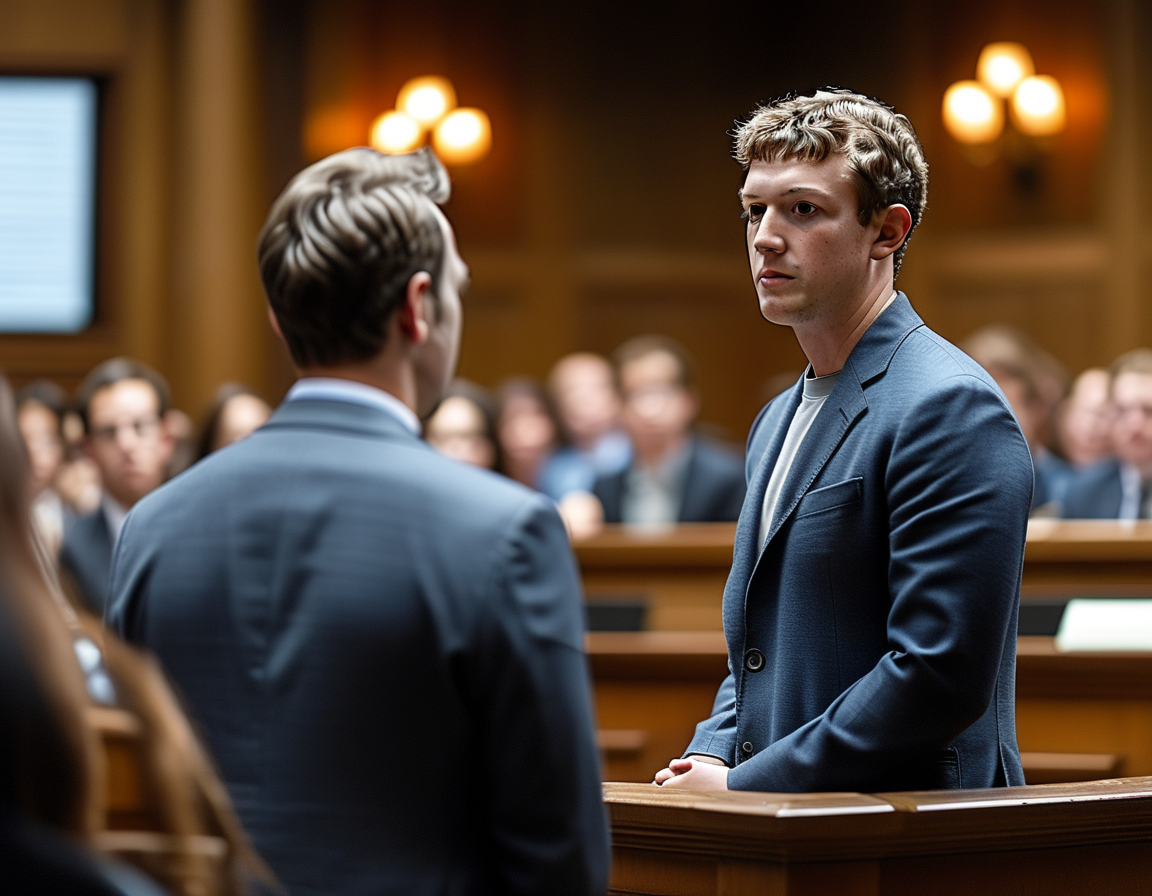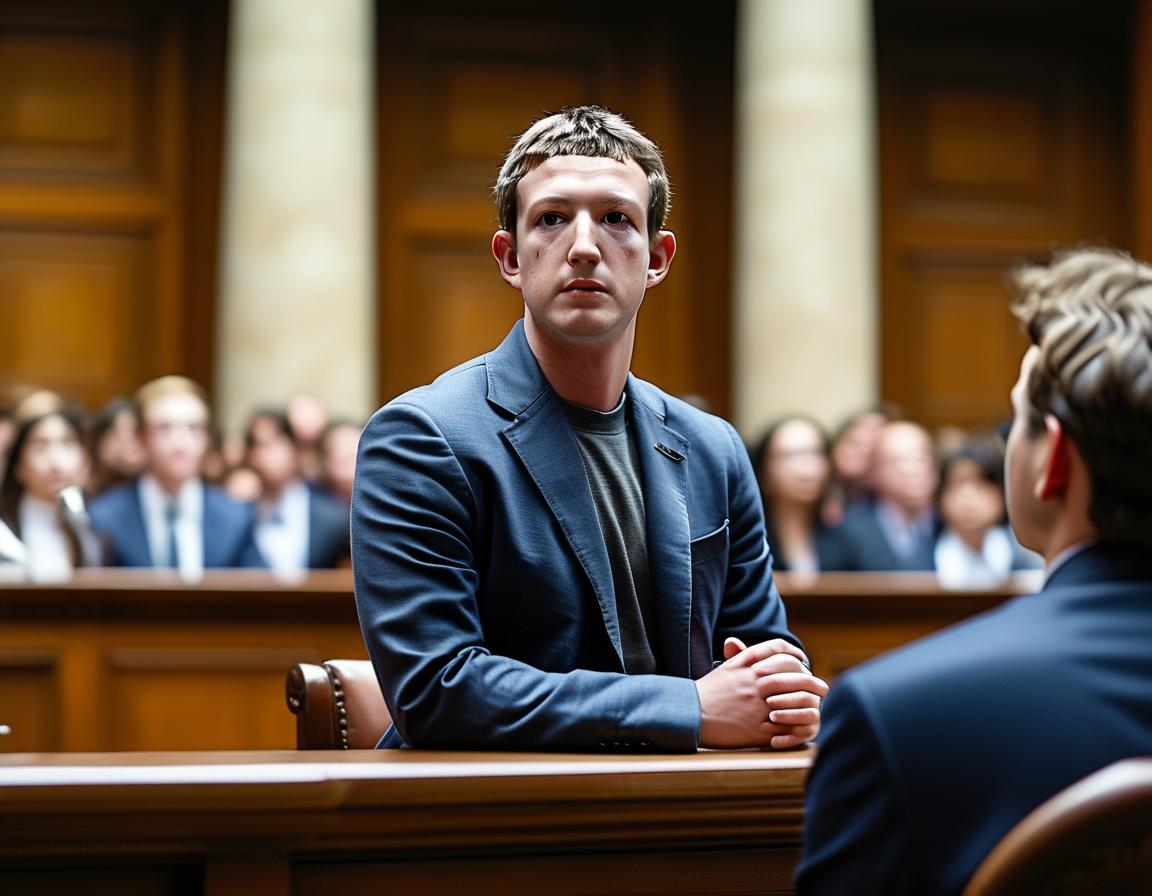In a high-stakes trial, Mark Zuckerberg took the witness stand to defend Meta against claims of monopolistic behavior. This case, initiated by the Federal Trade Commission in 2020, raises questions about competition in the social media landscape. Can Meta sustain its dominance? Let’s explore.
The courtroom in Washington, D.C. buzzes with tension. On one side, Zuckerberg, dressed sharply, tackles serious allegations. On the other side, the FTC seeks to fracture his empire. This unfolding drama is not just about law; it’s about the future of social media.

Zuckerberg’s appearance at court is historic. He’s the face of Meta, the tech giant that owns platforms used by billions. But with great power comes scrutiny. Some observers wonder: Is he defending innovation or stifling competition?
The FTC’s case centers on acquisitions of Instagram and WhatsApp. These are not just apps; they symbolize Meta’s broader strategy. When Meta bought Instagram in 2012 and WhatsApp in 2014, the price tags were controversial. Did they genuinely aim to enhance their services, or was it a move to snuff out competition?
The FTC pointed out Zuckerberg’s email from 2011, expressing concern about Instagram’s rapid growth. But during his testimony, Zuckerberg dismissed the emails as mere discussions. He highlighted how Meta has successfully improved Instagram’s features since then. But can those improvements overshadow the potential risks of monopoly?

Daniel Matheson, the FTC lawyer, painted a stark picture. He claimed that instead of competing, Meta chose a path of acquisition to ensure dominance. “They decided that competition was too hard,” he argued. Is that the reality of big tech today—a narrative of buying out rivals instead of evolving?
Meta’s team responded vigorously. They accused the FTC, which once approved the acquisitions, of misunderstanding the digital marketplace. “We acquired Instagram and WhatsApp to improve them alongside Facebook,” their attorney asserted. This claim raises a pivotal question: Can the growth of an empire ever be justified?
Zuckerberg argued that the FTC’s lawsuit was misguided. After all, competition exists, he said, citing apps like TikTok and YouTube. Still, the question lingers: Are these overhyped competitors, or are they genuine threats?

Beyond the courtroom, Meta’s political connections surface. The company’s lobbying efforts have not gone unnoticed. Rumors suggest Zuckerberg had direct talks with Trump to influence the FTC’s course. Is there an intertwining of business and politics that shapes how these tech giants operate?
The trial’s outcome could be monumental. If the FTC succeeds, Meta could be forced to spin off its most popular services. But legal experts, like Laura Phillips-Sawyer, warn that proving the case may be challenging. Does the FTC have the necessary firepower to challenge a giant?
In contrast, the ongoing lawsuits against Amazon and Apple add layers to this narrative. With various companies scrutinized, are we witnessing a new era of accountability in tech? Or is this nothing more than a fleeting moment in a larger game?
Zuckerberg’s testimony isn’t simply about defending Meta. It’s about the broader implications of tech monopolies. As an observer, I can’t help but ask: What does this mean for innovation? Will we see greater diversity in social media, or are we destined for a few dominant forces?
As the trial unfolds, the stakes remain high. With billions of users and untold influence, Zuckerberg’s defense is vital, not just for Meta, but for the entire tech ecosystem. Can a balance be struck between growth and fair competition?
These reflections are critical as we navigate our digital landscape. Will we allow a few players to dominate, or will diverse voices emerge? It’s a narrative worth following as the trial progresses, illuminating the future of our online lives.
Leave a Comment